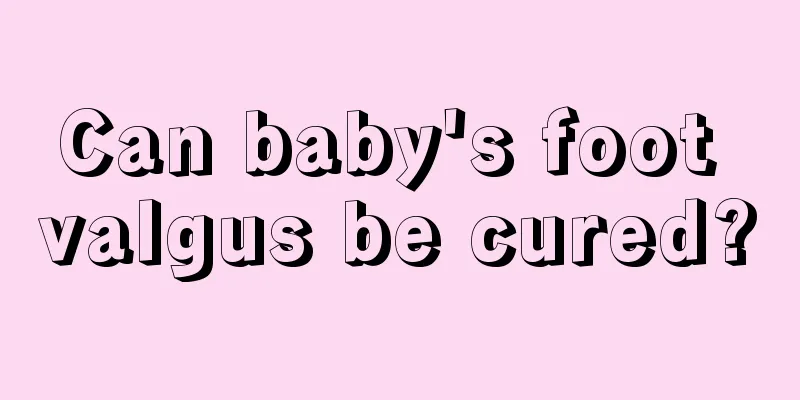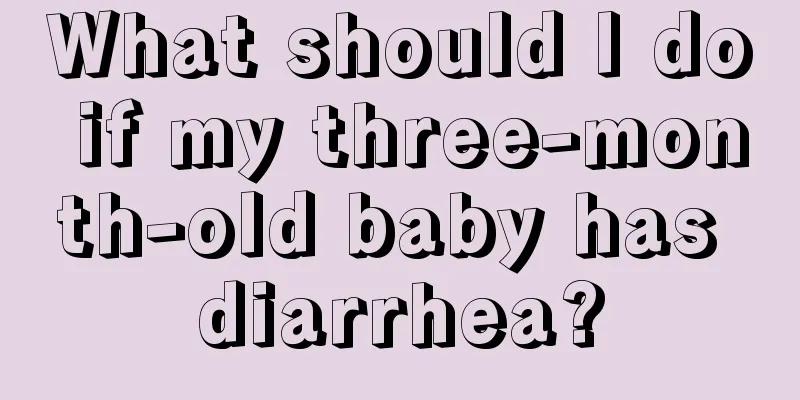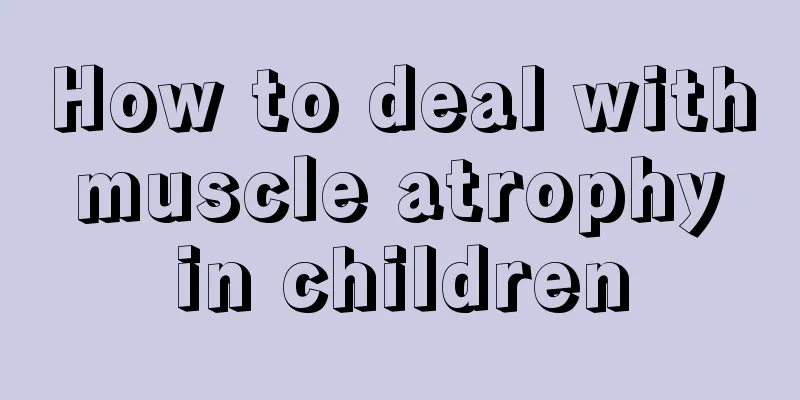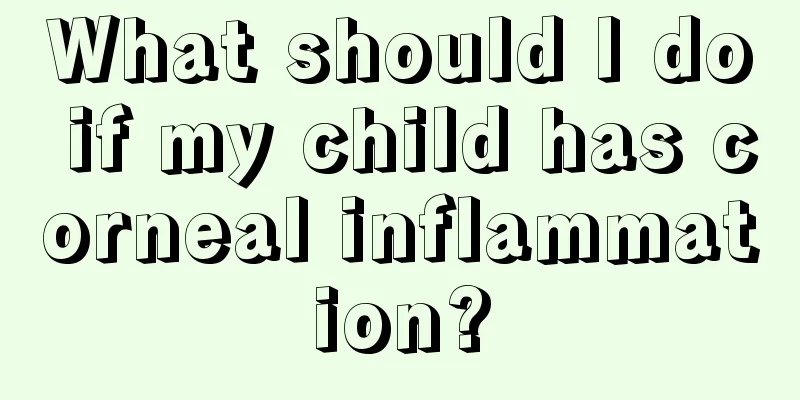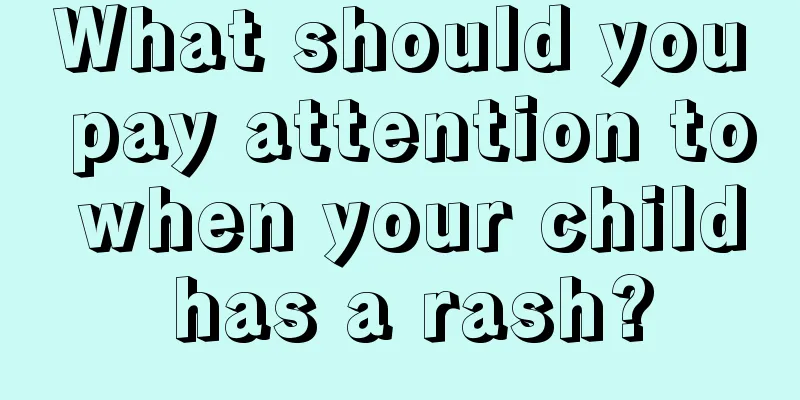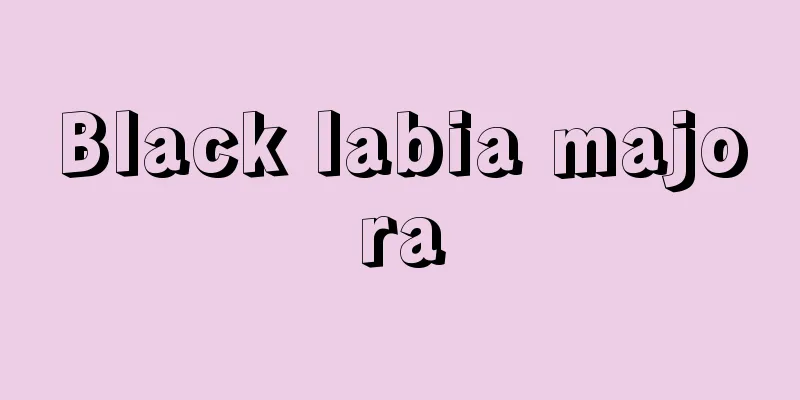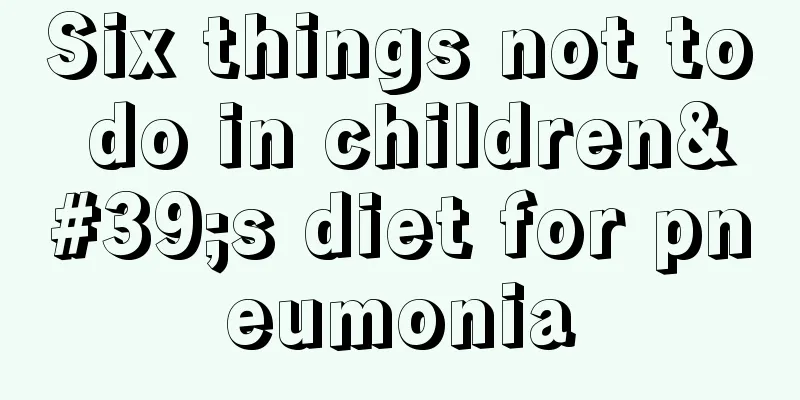What to do if your child has a fever and does not defecate
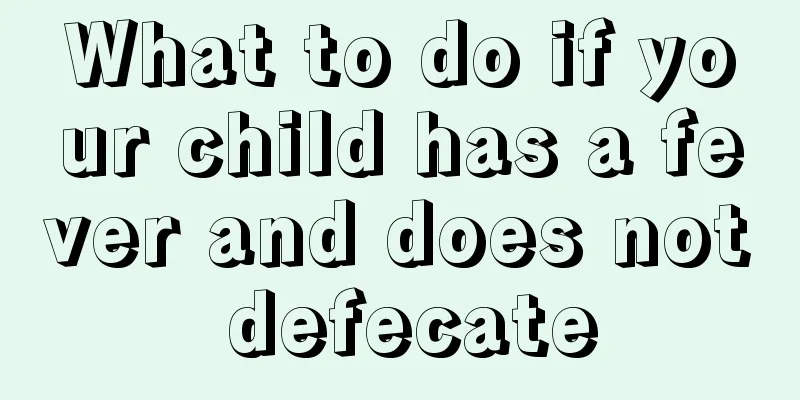
|
Children need to be relieved of their fever in time to prevent their condition from worsening. The most important thing is that during the fever, they may not be able to defecate, which is very good for their bodies. If it continues for a long time, it will directly cause gastrointestinal disorders. Therefore, relevant treatment measures must be taken as soon as possible. 1. Treat the primary disease Fever is a manifestation of disease, not an independent disease. Therefore, when treating children's fever, we should not simply focus on reducing the fever, but should actively look for the cause of the fever and treat the primary disease. 2. Antipyretic treatment Children with persistent high fever need appropriate cooling measures to avoid brain cell damage and possible adverse effects due to excessively high body temperature. It is especially necessary to take cooling measures in a timely manner for children with a history of febrile convulsions and children with high fever and extreme irritability. The following conditions in children with fever require vigilance or emergency treatment: febrile convulsions; fever in infants under 3 months old; fever lasting more than 5 days; fever > 40°C and cannot be effectively reduced within 2 hours by acetaminophen or ibuprofen; obvious changes in children's behavior: such as not liking to play, loss of appetite, rarely talking, indifference to surrounding things, or sudden special behavior that has never appeared before; less urine, indicating dehydration, such as infants wet < 3 diapers a day, or older children have not urinated for 8 to 12 hours. 3. Common cooling measures include: (1) Physical cooling: Warm water bath, ice cubes in a waterproof plastic bag wrapped in a dry towel and applied to the head and neck, and also to the armpits and groin. It is not recommended to use cold water or alcohol for bathing. (2) Drugs are commonly used to reduce fever, such as acetaminophen (for children > 3 months old) or ibuprofen (for children > 6 months old), which can be taken orally or rectally. The medicine can be used every 4 to 6 hours. Aspirin should be used with caution in children (it can cause Swiss syndrome). It is generally not recommended to use hormones alone to reduce fever. It is not advisable to use drugs to reduce fever in newborns because their body temperature regulation function is not yet fully developed. (3) Traditional Chinese medicine for cooling down: acupuncture, oral administration, external application or enema of traditional Chinese medicine, and massage. (4) Artificial hibernation therapy is a cooling method that combines drugs (chlorpromazine and promethazine mixed in equal amounts) with physical cooling. Artificial hibernation has a powerful protective inhibitory effect on the central nervous system, which can make the body fall asleep, lower the temperature, reduce the metabolic rate and oxygen consumption. It is mainly suitable for patients with persistent high fever or convulsions caused by severe infection, such as toxic bacterial dysentery, viral encephalitis, purulent meningitis, etc. 4. Other symptomatic supportive treatments (1) Provide a comfortable cooling environment. Place the child in a quiet, cool, well-ventilated environment. The child should wear cool and breathable clothing. Do not cover the child with a blanket to induce sweating. (2) Replenish water and electrolytes in time to maintain smooth bowel and bladder function. (3) Provide children with nutritious, light, and easily digestible food. |
<<: There is a hard lump in the middle of the baby's upper abdomen
>>: Can children eat peaches when they have a fever?
Recommend
The dangers of childhood obesity
As our quality of life continues to improve, many...
Which ointment is best for children's eczema?
Eczema is a common skin disease that occurs not o...
How many pounds does a baby gain in one month?
The baby's weight has a certain significance ...
What is the vaccination schedule for my baby?
Currently, babies of appropriate age need to be v...
Is infantile convulsion a seizure? What symptoms will it cause?
Infantile convulsions, also commonly known as inf...
Is it normal for a three month old baby to lose hair?
Some new mothers found that their babies started ...
What are the treatment and prevention methods for children's night terrors?
Some babies often have night terrors when they ar...
Obesity standards for children
Obesity has become a major disease that endangers...
How many teeth does a two and a half year old baby have?
A two and a half year old baby has about 20 teeth...
What to do if your child has red and swollen eyes
Sometimes children have red and swollen eyes, whi...
How to treat abscesses on children's gums?
During the growth and development period of child...
Why do children have memory loss?
Children's poor memory is one of the things t...
What should I pay attention to when taking anthelmintics?
I believe most people are familiar with anthelmin...
Reasons why babies always stick out their tongues
The physical health of the baby is an issue that ...
What should I do if my 11-year-old child has recurring fever?
Children's disease resistance is much weaker ...


